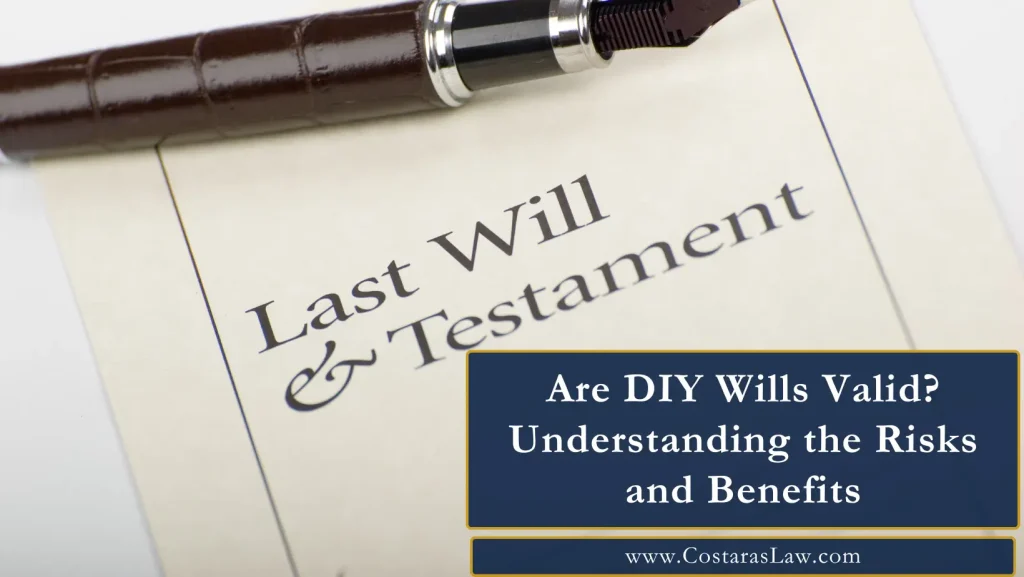
Here’s a jaw-dropping fact: A recent survey revealed that nearly 70% of Americans believe DIY wills are as valid as those prepared by professionals. While the allure of saving money and time is strong, the question remains—are DIY wills actually valid? Let’s delve into the intricacies of DIY wills, uncover their potential risks, and discuss why consulting an estate planning attorney might be the best move to ensure your final wishes are honored.
DIY wills are self-prepared documents intended to outline how one’s estate should be managed and distributed after death. These forms are often available online or in stationery stores, promising simplicity and affordability. However, the validity and reliability of such documents can be questionable.
The Appeal of DIY Wills
- Cost-Effective: DIY wills are significantly cheaper than hiring a professional.
- Convenience: They can be completed at home, on your own schedule.
- Privacy: DIY wills allow you to handle personal matters without disclosing details to a stranger.
The Risks Involved
While DIY wills might seem like a straightforward solution, they come with several potential risks:
- Legal Requirements: Each state has specific legal requirements for wills. A DIY will might not meet all these criteria, rendering it invalid.
- Complexity of Estates: For those with complex estates, DIY wills may fail to cover all necessary aspects, leading to potential disputes.
- Errors and Omissions: DIY wills are prone to mistakes that can lead to significant legal challenges.
Are DIY Wills Valid?
The validity of a DIY will largely depends on its compliance with state laws. If the will does not meet the required legal standards, it can be easily contested in court, possibly leaving your estate in turmoil.
Case Studies
- Case Study 1: Jane, a single mother, used a DIY will to outline her estate. Upon her passing, her will was contested because it didn’t meet her state’s witnessing requirements, leading to a lengthy and costly legal battle.
- Case Study 2: John, with a straightforward estate, successfully used a DIY will that met all legal standards in his state. His estate was distributed without issues, highlighting that under the right circumstances, DIY wills can be effective.
The Role of an Estate Planning Attorney
Consulting an estate planning attorney can help mitigate the risks associated with DIY wills. Here’s why:
- Expertise: Attorneys understand state-specific legal requirements and can ensure your will is valid.
- Customization: They can tailor your will to address your unique estate, covering all necessary details.
- Peace of Mind: Knowing your will is legally sound can provide peace of mind, reducing the likelihood of disputes.
When to Consider a DIY Will
- Simple Estates: If your estate is straightforward, with few assets and beneficiaries, a DIY will might suffice.
- Limited Funds: For those unable to afford an attorney, a DIY will is better than no will at all.
- Immediate Need: If you need a quick solution and plan to consult an attorney later, a DIY will can serve as a temporary measure.
When to Avoid a DIY Will
- Complex Estates: If you have a complex estate with multiple assets, businesses, or blended families, an attorney is crucial.
- High Net Worth: Significant assets and wealth can lead to more disputes; professional guidance ensures your wishes are clear and legally binding.
- Health Concerns: If you anticipate challenges to your will, such as claims of undue influence or incapacity, an attorney can provide a robust defense.
FAQs
Q: Can a DIY will be contested easily? A: Yes, DIY wills are often more susceptible to contests due to potential errors or non-compliance with legal standards.
Q: How much does an estate planning attorney cost? A: The cost varies widely based on location and complexity of the estate, but generally ranges from a few hundred to several thousand dollars.
Q: What happens if my DIY will is found invalid? A: If a DIY will is invalid, your estate may be distributed according to state intestacy laws, which might not reflect your wishes.
Q: Are there any online services that can make DIY wills more reliable? A: Some online services offer guided will creation that includes legal checks, but consulting an estate planning attorney is always the safest route.
Alternatives to DIY Wills
- Online Legal Services: These services often provide more structured and legally compliant templates.
- Legal Aid: For those with limited means, legal aid organizations may offer free or low-cost will preparation services.
- Hybrid Approach: Create a basic will yourself, then have an attorney review and amend it.
Final Thoughts
While DIY wills can be a viable option for some, they come with significant risks. Ensuring your will is valid and reflects your true intentions is crucial, and a living will attorney cleveland can provide the expertise and peace of mind needed. Weighing the benefits and risks carefully can help you make the best decision for your estate planning needs.
